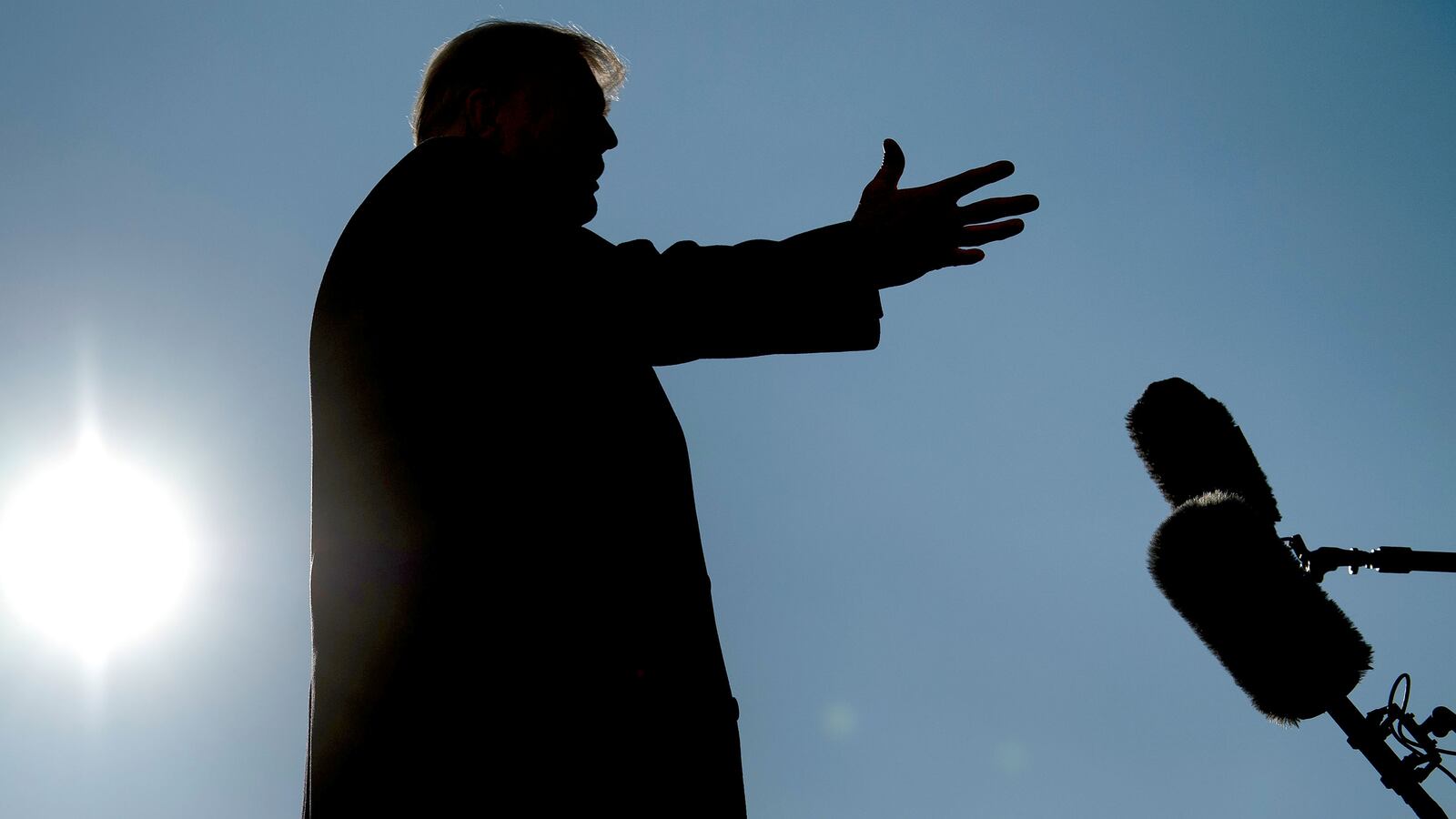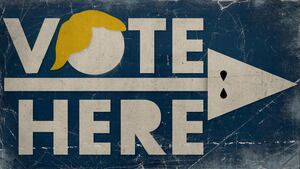I’ve spent the better part of a decade trying to elucidate why one of our major political parties went crazy and decided to worship Donald Trump—with that knowledge in hand, we have the potential to begin healing both the party and America.
Trump was able to take over the Republican Party for many reasons—most of which reflect Republican failings. But there is another perspective that is not widely understood or appreciated. According to Kevin Drum, the liberal journalist formerly with Washington Monthly and Mother Jones, “It is not conservatives who have turned American politics into a culture war battle. It is liberals.”
It’s a counterintuitive observation. Aren’t Republicans the ones who are staking out extreme positions? “Since roughly the year 2000, according to survey data,” Drum writes, “Democrats have moved significantly to the left on most hot button social issues [here, he cites immigration, guns, taxes, abortion—and even religion] while Republicans have moved only slightly right.” So, ask yourself this question: Was Trump’s rise to power a product of a Republican backlash to Democratic provocation?
Democrats don’t comprehend how it feels to “stand athwart history, yelling ‘Stop!’” All. The. Damn. Time. It’s something akin to how it feels to be a soccer goalie. Conservatives are constantly on defense. Progressives are always coming for more. Betsy Ross’s flag. Theodore Roosevelt statues. Goya foods. This constant barrage, to summarize Drum’s hypothesis, drives conservatives crazy. That’s why—in lieu of actually winning most policy battles—so many conservatives have radicalized.
“For most people, losing something is far more painful than the pleasure of gaining something of equivalent value,” Drum explains. “And since conservatives are ‘losing’ the customs and hierarchies that they’ve long lived with, their reaction is far more intense than the liberal reaction toward winning the changes they desire. This produces more outrageous behavior from conservatives even though liberals are actually the ur-source of polarization.”
Of course, one man’s provocation is another man’s progress. Should Democrats feel bad that they won the gay marriage debate? Today, most Republicans support it. But putting aside the deep substantive questions, we are still left with other, more technical, complications. Let’s start with the survey data on which Drum premises his piece. Polling is always subject to criticism about things like margins of error and the way questions are framed, not to mention selection bias. But the most legitimate pushback concerns sample size. By starting his analysis in the year 2000, he conveniently ignores the Reagan and Gingrich revolutions. In this regard, Drum’s hypothesis feels consistent with criticism that Trump’s more nationalistic supporters lodged at the conservative movement—saying we have conserved nothing.
A simple left-right analysis of shifts in public opinion from 2000 to 2021 also ignores the GOP’s reordering from Bush compassionate conservatism to Rovian gay marriage bashing to Tea Party anti-bailout/anti-Obamacare revolt to cultish authoritarian Trumpism (mixed in with heightened focus on race/immigration/transgender issues but less focus on traditional fiscal conservatism). Still, despite all the messiness and the caveats, Drum is on to something.
Trump’s presidency was preceded by an Obama era that many of us felt was relatively anodyne. While racial backlash likely contributed to some of the right’s radicalization that occurred during that time, many religious conservatives saw the controversies involving Hobby Lobby (trying to force a Christian company to provide contraception) and Little Sisters of the Poor (trying to force a religious order to provide contraception) as a direct attack on religious liberty. Others resented Obama’s executive order on DACA (which he previously said was unconstitutional) and his trolling of Trump during the 2016 presidential race (ostensibly to accelerate the GOP’s looney lurch so they would lose the election). That did not work out as planned.
Democracy works best when we have two sane centrist parties. Right now, we have one half of one party that fits this description. Therefore, it’s in everyone’s best interest to encourage Democrats to reel it in a bit, to save themselves, and to help the GOP recover from the cancer that elected Trump.
That means avoiding crazy ideas like “defund the police.” That means avoiding rhetoric that essentially labels all white Americans as “white supremacists.” It means not imposing the kind of litmus test that would force even Joe Biden to flip-flop on taxpayer funding of abortion. It means fellow Democrats condemning rhetoric like we saw from Squad member Cori Bush over the Fourth of July. It means having Biden finally have his “Malarkey Moment,” where he defends America and calls out the left-wing of his party for such egregious rhetoric.
All this to say that Democrats would benefit from some introspection, adult leadership, and a bit of humility—just acknowledging that they don’t have a monopoly on virtue or good ideas. Sometimes liberals are right about big things (e.g., civil rights) and sometimes conservatives are right about big things (e.g., the Cold War). Democracy is messy, but we eventually hash things out and (usually) arrive at the right place. But it takes us all working (and sometimes fighting) together.
The crux of my message to Democrats is that you should resist the siren call of radicalism, which the GOP has not, but also the temptation to run up the score while you’re in power. If the country’s well-being isn’t an adequate motivator, maybe self-preservation is. Drum makes the pragmatic case that “Democrats have stoked the culture wars by getting more extreme on social issues and Republicans have used this to successfully cleave away a segment of both the non-college white vote and, more recently, the non-college nonwhite vote.”
Cards on the table: I am an American conservative because I believe that liberal democracy is precious and worth conserving. I believe in reform—not revolution. And it strikes me that in these crazy times, radical left-wing ideas are dangerous not just on their own merits, but also because they spur contentious right-wing backlash.
Now, you may assert that other people’s revanchist (over)reactions aren’t your problem. But if you care about thwarting Donald Trump and the next Donald Trump—and if you care about holding this country together and preserving this tenuous experiment—I say they are.






